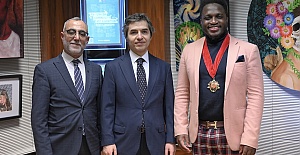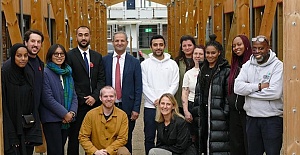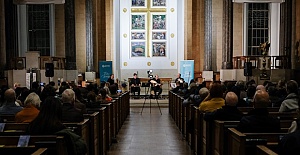Children of migrants socialise and are educated in the receiving country, whereas parents socialise in the country of origin and are less able to engage in the language. They adopt the practices, norms, and language of the receiving country more quickly than their parents. Engaging in different social and cultural repertoires and different levels of socialisation might create communication problems between young people and their families. This produces a fear among parents. This parental fear is also visible in the case of the Turkish, Kurdish and Turkish-Cypriot parents that I met. They fear that their children are losing their cultural roots. Parents highlighted this feeling and the correlated fear of losing the ability to guide and influence their children: ‘we are losing our children, they are becoming English; they should know who they are and where they come from’. Migrants aim to improve their lives and provide better future for their children, while the same time they do not want their children to lose the cultural background of the country of origin and become British. For young people who are growing up with such a dual frame of reference, however, remaining close to the culture of the country of origin becomes difficult: they interact with different cultural repertoires in everyday life and they do not have a direct relationship with the country of origin, i.e. they have never lived there.
Some parents who also do not have language skills to engage with the receiving society, are not able to help their children with the problems they face at school and tend to impose the cultural identity and traditions of the country of origin onto young people which does not always fit with the expectations of migrant youth. The second generation, on the other hand, having been educated in the receiving society, engages with the language of the receiving society independently of their socio-economic background, constructing social relations in the receiving society with people who belong to different ethnic origins. Families have contradictory expectations from young people: for instance, practicing the culture of the country of origin and not engaging more than necessary with the culture of the receiving society but at the same time wanting them to succeed in their education. For young people adapting to the receiving society, however, it is simply a question of survival. This dilemma creates several types of problems between the family and young people. It has been observed that many Turkish, Kurdish and Turkish-Cypriot youth negotiate their relations with their families by not accepting all cultural values transmitted from their parents and they have constructed social networks with their families around the world which signifies interpersonal relations rather than a collective identity.
Migratory Youth and Their Families
Children of migrants socialise and are educated in the receiving country
10 Temmuz 2012 Salı 09:26
reads.



 Prime Minister Keir Starmer's 2025 Easter message
Prime Minister Keir Starmer's 2025 Easter message After Nesil Caliskan a by-election will be held in Jubilee ward in Enfield
After Nesil Caliskan a by-election will be held in Jubilee ward in Enfield Publishing the analysis, Labour’s Cllr Ergin Erbil said Everybody in Enfield deserves basic rights
Publishing the analysis, Labour’s Cllr Ergin Erbil said Everybody in Enfield deserves basic rights Gaza-Israel conflict Statement from Cllr Ergin Erbil, Leader of Enfield Council
Gaza-Israel conflict Statement from Cllr Ergin Erbil, Leader of Enfield Council The European Union called on Turkey to uphold democratic values
The European Union called on Turkey to uphold democratic values Turkish citizens in London said Rights, Law, Justice
Turkish citizens in London said Rights, Law, Justice The Council of Turkish Cypriot Associations Geneva response letter
The Council of Turkish Cypriot Associations Geneva response letter Sustainable Development and ESG, Will This Become the Course for Turkic World
Sustainable Development and ESG, Will This Become the Course for Turkic World The 'Prince of Paris' has impressed in his first EuroLeague season
The 'Prince of Paris' has impressed in his first EuroLeague season Saran Media And Euroleague Basketball Extend Media Rights Partnership for Four More Years
Saran Media And Euroleague Basketball Extend Media Rights Partnership for Four More Years Will Rangers be Jose Mourinho’s next victim?
Will Rangers be Jose Mourinho’s next victim? Jose Mourinho's Fenerbahce face Rangers on Thursday
Jose Mourinho's Fenerbahce face Rangers on Thursday Barclays has become the biggest UK lender so far to cut mortgage rates
Barclays has become the biggest UK lender so far to cut mortgage rates THE SPRING STATEMENT EXPLAINED, UK ECONOMIC OUTLOOK AND GROWTH FORECASTS
THE SPRING STATEMENT EXPLAINED, UK ECONOMIC OUTLOOK AND GROWTH FORECASTS Launch of Made in Enfield gift shop to celebrate local artists and designers
Launch of Made in Enfield gift shop to celebrate local artists and designers Trial used smart Wi-Fi sensors for live building occupancy data to optimise
Trial used smart Wi-Fi sensors for live building occupancy data to optimise
















